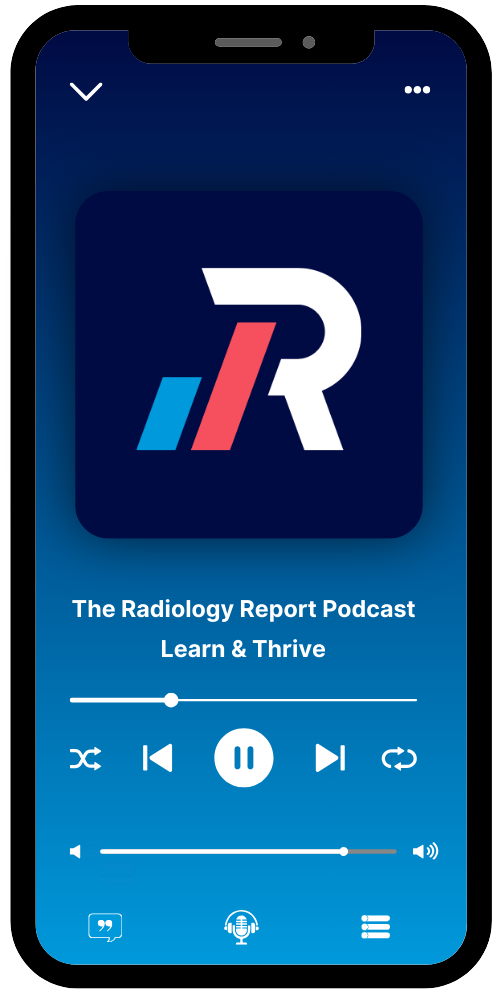In a recent episode of The Radiology Report Podcast, host Daniel Arnold sat down with Dr. Taylor Pomeranz to discuss her unique experience as an attending neuroradiologist balancing clinical practice with specialized training through an MSK (musculoskeletal) fellowship. Their conversation shed light on the evolving landscape of radiology training, career paths, and how radiologists are redefining work-life balance.
Here are three key takeaways from the discussion:
1. The Rise of Hybrid Fellowships
Dr. Pomeranz is part of a growing number of radiologists who are pursuing private practice fellowships, such as her MSK training with ProScan and Medality. Unlike traditional academic fellowships, these programs allow radiologists to work in their own practices while advancing their skills in a subspecialty.
She explains how this approach is both practical and beneficial for radiologists who are unable or unwilling to relocate for a traditional fellowship. With high volumes of cases and broad case mixes available at ProScan, Dr. Pomeranz emphasizes that these hybrid fellowships provide robust training with a focus on increasing quality and efficiency.
“I’m able to learn within the confines of my own practice, which is heavily MRI-based. This setup gives me the flexibility to build the skills I need for my specific work environment […] something that a traditional fellowship may not fully support.”
2. On-the-Job Learning: A Key to Lifelong Growth
Radiology, like many other medical fields, has evolved in how learning and training are delivered. Dr. Pomeranz reflects on the importance of on-the-job learning, even for experienced radiologists. She shares how radiologists are constantly encountering new cases, requiring them to remain adaptable and continue developing their skills.
“No matter where you end up in medicine, you’re always going to be doing on-the-job learning. I’m an Attending Neuroradiologist, and […] I still frequently see things I’ve never seen before.”
This approach, accelerated by the COVID-19 pandemic, has opened doors to new ways of learning in radiology, especially as more radiologists embrace opportunities to upskill within their existing work environments.
3. Work-Life Balance and Flexibility in Radiology
A significant theme in the podcast was how radiologists can maintain a healthy work-life balance while advancing their careers. As a mother of four young children, Dr. Pomeranz highlighted the flexibility that her current position offers her. With a patient-focused practice and a supportive team, she is able to balance clinical work with family commitments, all while pursuing her fellowship.
“I have the flexibility to manage my own work. Whether it’s attending a pediatrician appointment or coaching my kids’ soccer team, […] I can step away when needed and still get my work done later. This kind of autonomy has been invaluable.”
She also shared her perspective on how radiologists can prioritize their day-to-day satisfaction over external factors like vacation time or salary, suggesting that focusing on autonomy and job enjoyment can help prevent burnout.
Listen to the full episode for more insights from Dr. Pomeranz on the future of radiology fellowships!




